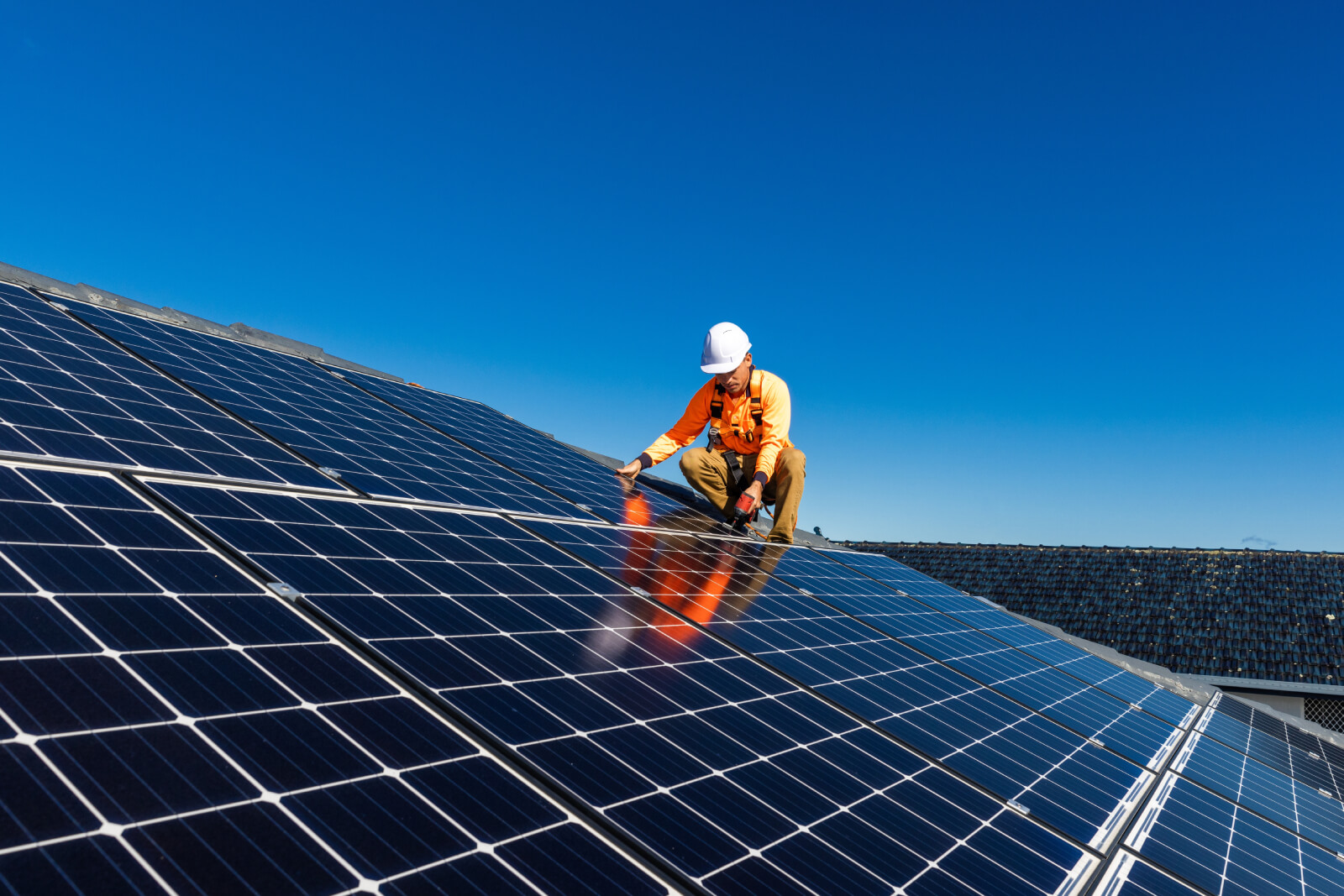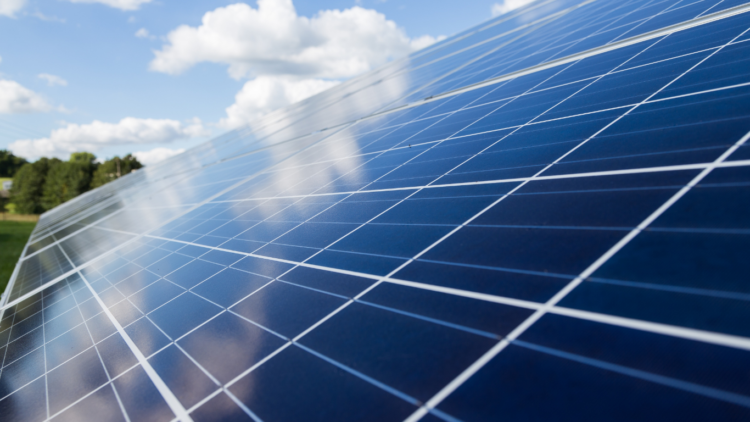Protect your future with sustainable energy solutions using Solar Panels.
Protect your future with sustainable energy solutions using Solar Panels.
Blog Article
Make Best Use Of Energy Savings With High-Quality Solar Panels
Making best use of energy financial savings through the usage of high-grade solar panels is a diverse technique that requires careful factor to consider of modern technology, installation, and maintenance. Picking high-efficiency choices, such as monocrystalline panels, can substantially boost power generation, while resilience and guarantee terms play an important function in long-lasting monetary stability.
Benefits of Solar Power
The benefits of solar power are many and considerable, making it a progressively attractive option for both property and commercial applications. One of the main benefits is its prospective to lower electricity bills. By using sunshine, homeowner can produce their own power, lowering dependence on conventional energy sources and ultimately leading to considerable cost savings.
Another important benefit is ecological sustainability. Solar energy is a tidy, renewable energy that aids to mitigate greenhouse gas emissions, adding to a reduction in air contamination and environment change. This aligns with global efforts to transition towards more lasting energy services.
Additionally, solar power systems can enhance residential or commercial property value. Houses and companies equipped with solar panels frequently have greater resale values, attracting environmentally-conscious buyers and capitalists. Moreover, federal government rewards, such as tax obligation credit ratings and refunds, can counter installment costs, making solar energy much more monetarily viable.
Lastly, solar technology promotes energy independence. By purchasing solar energy, people and companies can reduce their vulnerability to fluctuating energy rates and supply interruptions, fostering greater control over their power sources. Jointly, these benefits underscore the compelling reasons to think about solar power options.
Choosing the Right Solar Panels
Picking the best solar panels is a crucial step in maximizing the effectiveness and benefits of a solar power system. When examining solar panels, several variables need to be taken into consideration to guarantee optimum performance and long-term savings.
First, evaluate the panel's effectiveness score, which shows exactly how efficiently it converts sunshine right into electricity. Higher effectiveness panels may have a higher upfront expense however can generate more energy in minimal space. Next off, analyze the warranty offered by the manufacturer; a longer guarantee commonly shows a greater degree of confidence in the item's durability and efficiency.
In addition, take into consideration the sort of solar panel technology. Monocrystalline panels are understood for their high performance and space-saving layout, while polycrystalline panels have a tendency to be much more cost effective but a little less reliable. Bifacial panels, which catch sunshine from both sides, are also obtaining popularity for their possible to boost energy outcome.
Last but not least, perform a comprehensive evaluation of independent efficiency rankings and client reviews to evaluate dependability and complete satisfaction. By meticulously considering these factors, homeowners can make educated choices that align with their energy demands and monetary purposes, inevitably boosting the return on investment for their solar power systems.
Recognizing Installment Costs
Comprehending the costs related to installing photovoltaic panels is vital for home owners looking to spend in renewable resource. The overall installment price can differ dramatically based on numerous variables, consisting of system size, panel type, installation intricacy, and geographic location.
Commonly, the expense is relied on a per-watt basis, with typical prices varying from $2.50 to $3.50 per watt prior to any kind of motivations. A conventional residential system might set you back between $15,000 and $25,000, relying on energy demands and the selected components.
In addition to the panels themselves, property owners need to take into consideration expenses related to inverters, mounting equipment, and electrical upgrades. Labor costs additionally play an important function, as specialist installation makes sure compliance with safety and security criteria and regional laws.

Ultimately, recognizing these installation costs and prospective financial advantages is essential for home owners to make educated choices concerning transitioning to solar power.

Upkeep for Long-Term Cost Savings
Preserving solar panels is crucial for optimizing long-term power savings and making certain the system operates at peak performance. Normal upkeep entails numerous essential practices that can considerably enhance the longevity and try this out performance of solar installments.
First, routine inspections ought to be conducted to determine any physical damages or wear, such as cracks or loose connections. Cleansing the panels is also vital, as dirt, dirt, and debris can obstruct sunshine, decreasing power output (Solar Panels). It is suggested to clean the panels a minimum of twice a year, or a lot more often in locations with high levels of dirt or contamination
Additionally, keeping track of the system's performance with a tracking software can provide real-time data on power production and alert house owners to any abnormalities. This positive method permits prompt fixings, lessening downtime and preserving ideal energy generation.
Ecological Influence of Solar Power
The environmental effect of solar energy expands far past its instant advantages of minimizing power costs and reliance on nonrenewable fuel sources. By taking advantage of sunlight, solar power substantially decreases greenhouse gas exhausts, consequently mitigating climate adjustment. Unlike traditional energy sources such as coal or natural gas, solar energy generation does not produce air contaminants, adding to enhanced see post air top quality and public health.
Furthermore, solar energy advertises biodiversity by lowering the demand for nonrenewable fuel source extraction, which usually disrupts ecological communities and habitats. By transitioning to renewable resource sources, we can learn the facts here now protect natural landscapes and secure jeopardized species from environment loss.
The life process of photovoltaic panels also presents a reduced environmental footprint compared to conventional energy sources - Solar Panels. While producing photovoltaic panels entails some source use and emissions, innovations in modern technology and reusing procedures are consistently reducing these influences. In addition, the long-term benefits of solar power-- such as decreased reliance on finite sources-- much outweigh these initial prices
Conclusion
In summary, the fostering of top notch solar panels presents significant opportunities for power financial savings and ecological benefits. The tactical placement of solar panel choices with power needs and government incentives boosts return on investment, promoting sustainability and lowering dependence on standard energy resources.
Report this page